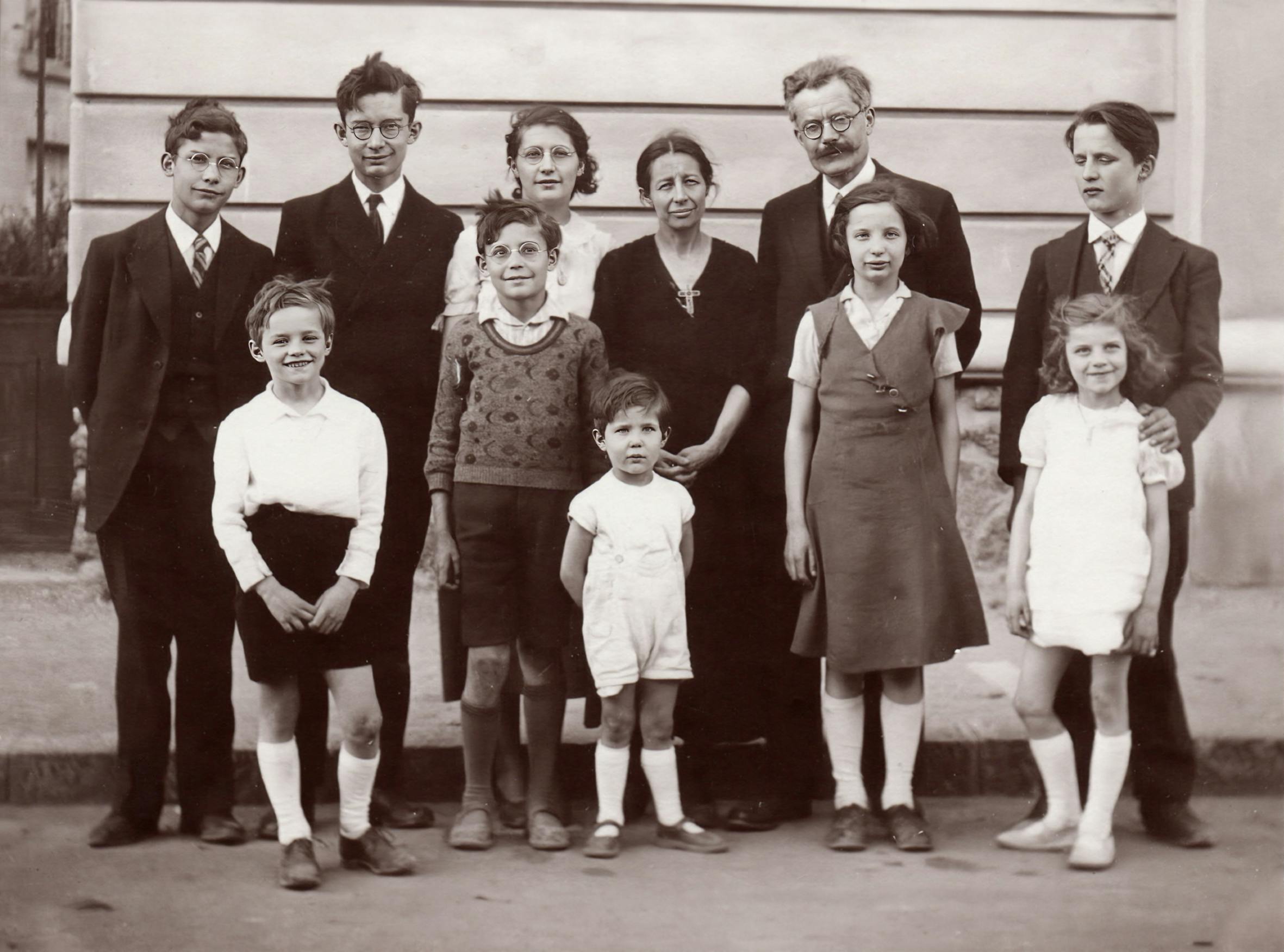
If you loved author Marcie Maxfield’s first book ‘Em’s Awful Good Fortune’, which we featured on GirlTalkHQ in 2021, then you will love her new book, a memoir titled ‘JewGirl’ out October 1, 2025 through Desert Canyon Press. Like her first book, this one is also fierce and feminist. But this time around, it’s about the intersection of Girlhood, Identity, and Women’s issues. ‘JewGirl’ is a funny and thought-provoking work of nonfiction that captures what it means to be Jewish and female at a time when antisemitism is on the rise and women’s rights are under siege.
‘JewGirl’ features essays tracing Marcie’s life from childhood to the present, capturing key moments that shaped her—from a young girl searching for belonging to a vocal feminist who embraces her Jewish heritage. Equal parts memoir and social commentary, ‘JewGirl’ explores the intersection of Jewish identity, gender equality, and race.
Marcie questions the assumption that systemic racism is based on skin color, noting how Jews are often left out of the conversation, despite enduring centuries of violent oppression. With nuance, compassion and humor, she examines the allure of assimilation, the ongoing impact of antisemitism on her family and community, and the resilience of the Jewish people.
Funny, sharp, and heartfelt, ‘JewGirl’ is a candid and compelling meditation on identity, privilege, and one woman’s journey to find her place in the world.
In the lead up to the book’s release, we were fortunate enough to publish an excerpt from the book, from the chapter about camouflage, or “camo”, as a fashion statement that never goes out of style about the evergreen war on women and Jews. Because it was too fierce and feminist to place at the bottom of this article, we wanted to begin the excerpt with Marcie’s headshot to (appropriately) set the tone of the piece!

Camouflage is my favorite color. Ever since college, when I bought a pair of used cargo pants from the army surplus store. They hung low on my non-existent hips, exposing a flat belly. And we marched across campus in protest. Now I wear camo everything. It complements my eyes, which are hazel. I even have a camo face-mask from Etsy. I figure, if you must wear a mask, why not make it fun? Plus, fashion bonus: Camo never goes out of style.
Wanna know why? Because we’re always at war.
The war on drugs.
The war on terror.
The war against the virus.
The war on women and Jews is long and storied; entwined. It runs through the pages of my mind, on repeat. It slips into conversations and anchors the news. It’s archival; it’s here and now, front and center. It was, it is, it’s always been. And someday … what? We’re supposed to believe it will be a footnote. Like Vietnam. Not a daily reminder of our place in the scheme of things. And I will be able to stop wearing camo.
Technically speaking, camo’s not a color. It’s a combination of colors that integrate into a pattern. Swirling together. Similarly, my approach to writing is about patterns, like a patchwork quilt. This is how I process life, through stories, memories, and historical references. And dreams. I used to fly in my dreams. Above the treetops, across oceans, looking down on cityscapes.
According to dream interpretations, this could mean anything from freedom and liberation to escapism, and everything in between—personal growth, resilience, and spirituality. To me, though, these dreams suggest the quest for a broader point of view, the desire to pull back the lens and reconsider experience from a distance. A reminder to let go of the root structure. And I need that reminder because I am, by nature, grounded; when I walk, I stare at the earth in front of me.
As a kid, I used to crawl through the dirt catching reptiles and toads at summer camp. If there were such a thing as heaven, mine would be dusty and filled with chameleons—those brownish-green lizards that change colors, depending on where they perch: earth or leaf. Now that’s a useful trick: the innate ability to blend in with your surroundings and avoid predators.
Camo skin tone would be cool, but impossible for a Jewish girl; it’s easier to change your name. Like when I got married and went from Blumberg to Maxfield. Poof! I could pass on paper. But only on paper. In person, there’s something not quite “passing” about me—it may be this tendency of mine to crack a joke, to not defer or act demure. As soon as I open my mouth, there it is. The attitude. The impudence of my writing. Lifting the rug and mucking about in the comic brutality of life.
I’m a little too wry.
A little too rye.
As a young woman working in the music industry, a potential marketing partner branded me “rude and abrupt.” My job was to secure free product in exchange for on-air promotional mentions. We’re talking airline tickets, donuts and coffee. Hot dogs and buns. Hot-dog guy called my boss to complain that I was rude and abrupt, because I didn’t linger on the phone and make nice after he’d turned down my request.
Because I didn’t perceive that I had time to waste making him feel better about saying no to me. Because I wasn’t sweet, didn’t grovel, and hadn’t yet learned the importance of chit-chat. It wasn’t until I perfected the art of giving great phone that I began to succeed. I was a worker bee. Good at my job. Right away, the guy I shared an office with reframed my success as masculine. Giving me a nickname: Mr. Marcie.
As if success in and of itself were a masculine trait. He even suggested I get a personalized license plate, slurring it together into one word: MrMarcie. Catchy, but I refused, on general principle: Personalized license plates are tacky. I didn’t confront him on sexism.
A girl has to pick her battles. Cutting him some slack, he may have been confused about my gender. The name Marcie does derive from the god (not the goddess) of war. Mars, not Athena. Which brings me back to camo: it’s the uniform of war, also called battledress. I have a gray-green camo T-shirt dress with short sleeves that I wear over deep coal multicolored camo leggings, and I do feel tough when I’m wearing it.
It sets a tone—fierce with a touch of sardonic.
I’m also a strong swimmer. I learned how to swim at summer camp, where we had to tread water for 20 minutes or the waterfront coach wouldn’t let us canoe, or sail, or do any of the cool water sports. This was a Christian camp; they had vespers on Sunday nights. It was like church in the woods. The big girls wore whites, but the little ones, called Chips, wore our jammies. We sat on sticky wooden benches in a clearing, surrounded by birch trees, a giant cross looming skyward.
Shorty, the camp owner/director, queen of all activities, decider of whether we got ice cream for dessert or an overnight in the woods, stood at the pulpit and led us in song. We had tree-sappy butts, Christmas in July, and Indian Council. We were Chippewa Braves learning the Sun Dance—all of us holding the ritual in the highest, most hallowed regard.
Years later, my sisters and I asked our mom why she sent us to that camp. I mean, there were other options. Jew Camp, for example—they had showers in the cabins with an outlet for hair dryers and boy-girl dances on Friday nights.
“I wanted you girls to be able to fit in anywhere,” Mom said.
Like chameleons, I thought. Only, she meant “assimilate.” That’s not the problem, though, is it? The issue isn’t whether we can get along in a non-Jewish world. The problem isn’t really on our end at all. The question is whether they are willing to let us co-exist.
As I write this chapter, antisemitism is not just on the rise; it’s being mainstreamed. The president dined with a Holocaust-denying white nationalist. A Republican congresswoman posted on Facebook about a secret Jewish space laser responsible for California wildfires. A Kennedy suggested that the COVID virus was engineered to target Caucasians and Black people, while sparing Jews and Chinese people. The social media platform X has become a hub for antisemitic rhetoric. The U.S. Secretary of Defense is opposed to reproductive justice and has amplified statements by a Christian nationalist organization that rejects a woman’s right to vote.
To ignore or discount these things is to engage in normalcy bias, like, hey, these people are just crazy outliers. That mindset reflects a cognitive deficiency that enables people to disbelieve or minimize threat warnings. These people have won elections, been appointed to government positions, and have access to the president.
The war on women and Jews is real.
Order a copy of ‘JewGirl’ by Marcie Maxfield HERE. Visit her website, and follow her on Facebook and Instagram.

















